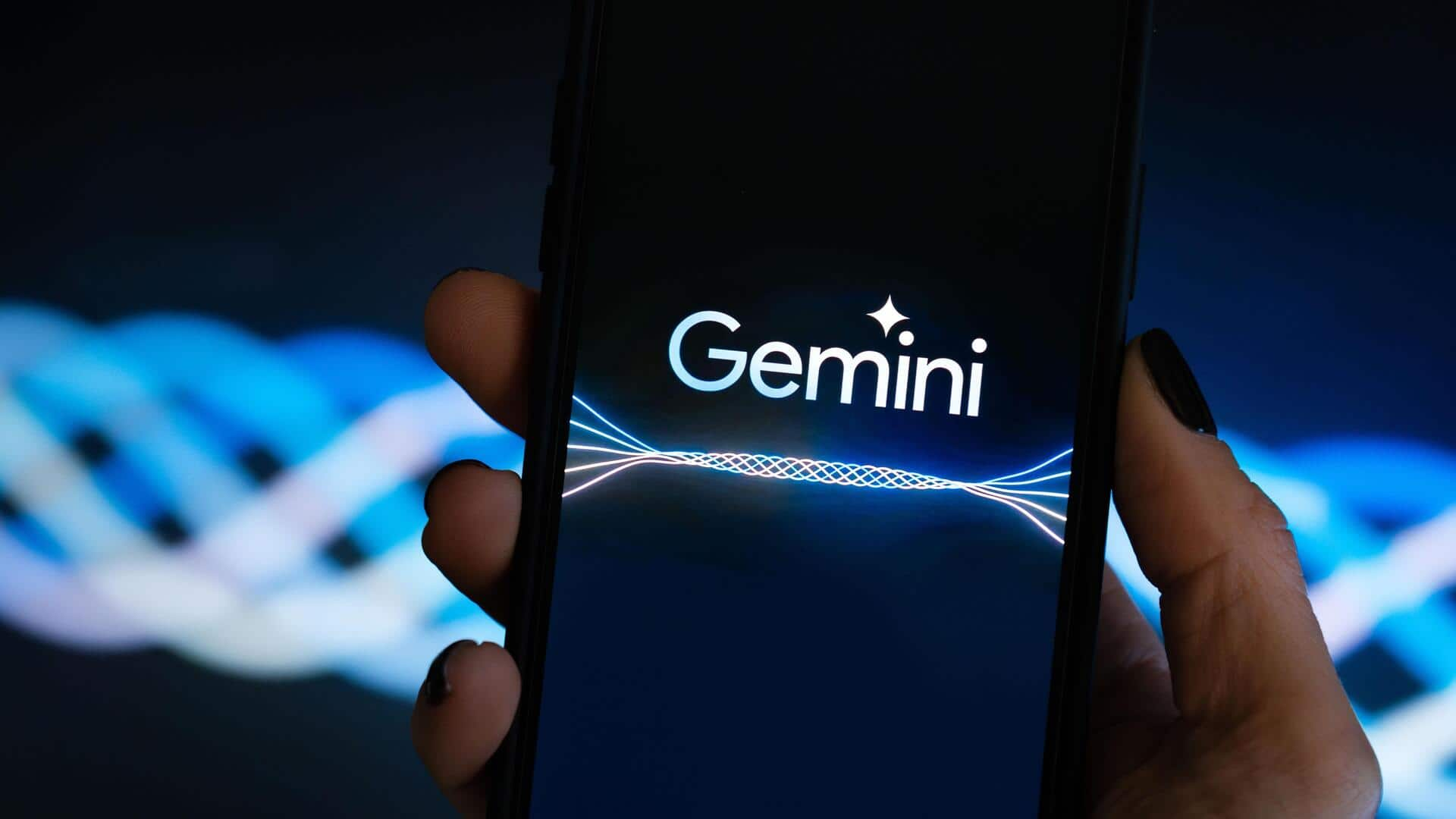
GM to introduce Gemini-powered assistant in cars by 2026
What's the story
General Motors (GM) has announced its plan to integrate a conversational artificial intelligence (AI) assistant, powered by Google Gemini, into its cars, trucks, and SUVs starting in 2026. The announcement was made at the automaker's GM Forward event in New York City on Wednesday. This move comes as part of a broader trend among automakers to adopt generative AI-based assistants for more natural driver interactions.
Tech advancements
Major tech updates from GM Forward event
The Gemini rollout is just one of the many tech-focused announcements made at the GM Forward event. Other major updates include a complete revamp of GM's electrical architecture and computing platform, as well as an automated driving feature that would let drivers take their hands off the wheel and eyes off the road. However, these features won't be available until 2028.
Tech integration
GM already has 'Google built-in' in its vehicles
GM's move to integrate Gemini isn't entirely surprising. The automaker's Buick, Chevrolet, Cadillac, and GMC brands already have "Google built-in," an operating system that gives drivers access to Google Assistant, Maps, and other apps from the car's infotainment screen. In 2023, Google started using its Cloud Dialogflow chatbot for non-emergency OnStar services like routing and navigation assistance.
AI capabilities
More natural conversations with Gemini AI
While GM hasn't revealed much about its Gemini-powered AI assistant, it promises more "natural conversations" and the ability to draft/send messages, plan routes with additional stops (like a charging station or coffee shop), or even prep for a meeting on the go. The new voice assistant is part of GM's larger vision of creating a custom-built AI that connects with vehicle systems through OnStar, GM's in-car concierge service.
User control
Addressing privacy concerns with the new AI assistant
The Gemini-powered AI assistant is designed to access vehicle data for maintenance alerts and route suggestions, explain car features like one-pedal driving, and pre-condition the cabin before you get in. GM assures users that they will have control over what information the assistant can access/use. The system can also learn from user habits to provide personalized recommendations, allaying concerns over privacy and data security.